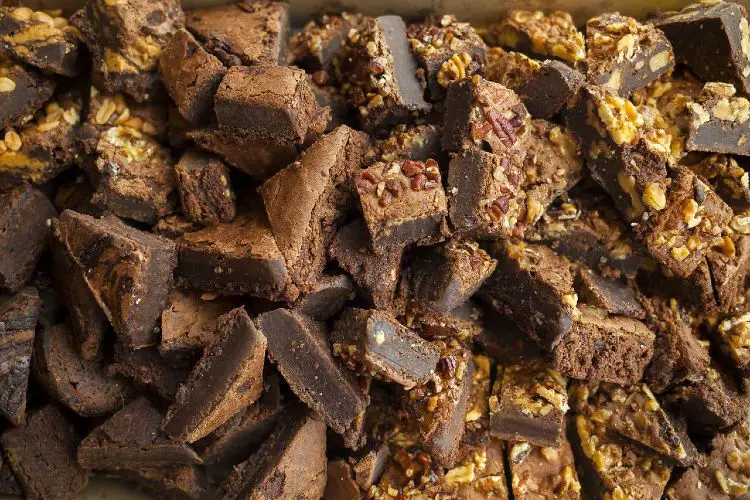Those Obscure Titbits of Literary Desire
Tell me what you eat, and I’ll tell you who you are,’ wrote renowned gastronome Jean Anthelme Brillat-Savarin in 1825. Let me update that: Tell me what you read and I’ll tell you what you want to eat.
There’s a scene in Geoffrey Household’s classic man-on-the-run thriller Rogue Male where the aristocratic anti-hero, his cover blown, visits his solicitor to tie up loose ends before disappearing. As it’s around lunchtime, the lawyer, an old friend, sends out for ‘some beer and a cold bird’. It’s a tiny detail in a minor episode but there is something about that phrase that is so finely judged, so utterly in keeping with the tone of the novel and the scene itself, wood-panelled privilege in the heart of pre-war London, that it invokes an impossible longing: suddenly some beer and a cold bird seems like the perfect meal. ‘I want it now!’ the suggestible reader cries, mouth watering, only to have his hankering dissolve almost instantly in ambiguity.What kind of bird is it? A guinea fowl? A partridge? A chicken? In a way it doesn’t really matter. The desire is illusory. The reality is that, like most food described in literature, Household’s stylishly austere lunch will lodge in the imagination and become a ghost itch you never quite manage to scratch.
As a child, this particular suggestible reader was often driven to distraction by the foodstuffs that cropped up in books. Enid Blyton’s fetishistically itemised picnics spring to most minds of course, but greater torments for me were to be found in Richmal Crompton’s stories of schoolboy outlaw William, a natural-born sugar-fiend whose sticky pockets were host to the full spectrum of the confectioner’s art. Pineapple crisps, pear drops, nutty footballs, bull’s eyes, gooseberry eyes, fruit drops, and ‘cokernut kisses’ were just some of the casually-strewn delights that had me foaming at the mouth and plotting a pyjama-clad break for the sweet shop.
For a while I was also addicted to the antics of Frank Richards’ incorrigible glutton Billy Bunter, taking great delight in his compulsive appetite for ill-gotten pies, buns, jam tarts and chocolates. ‘The Fat Owl of the Remove’ may have been a bounder and a chump but he knew his grub. To this day I occasionally crave the ‘chocolate creams’ he wolfs down in one shameful episode even though I’m still not sure what exactly they might be.
I had always assumed the intensity of my response to literary food was unusual, but a little field research later in life revealed I was not alone. One like-minded reader confessed that as a child she had to keep emergency bread and cheese under her pillow because that was what woodcutters in the tales of Hans Christian Andersen always seemed to eat when they stopped for lunch in the forest and to stumble across such an occurrence without being able to share in it was unbearable. That this rudimentary lumberjack’s picnic often festered beneath her pillow for weeks on end was a small price to pay.
Another – and I suspect he is not alone – feverishly recalled the fried freshly-caught trout, with potatoes, ‘deep yellow butter’, creamy milk and ‘gloriously sticky marmalade roll, steaming hot’ from the oven laid on by Mrs Beaver for the Pevensie children in The Lion, the Witch and the Wardrobe (a tale which, incidentally, sent Turkish Delight sales through the roof when the Disney version hit the big screen in 2005).
Adulthood leaves some of us no less susceptible. Having read Ian Fleming I am convinced James Bond’s ‘best meal he had ever eaten’ – the stone crabs with melted butter, toast, and iced pink champagne from Goldfinger – would also be my best ever meal but again, while it’s conceivable this spread might come my way before I die, the chances of enjoying it while clad in a bespoke tuxedo with a Walther PPK nestling under my arm are remote.
More realistic perhaps, and certainly more attuned to the metaphysical side of eating, is that renowned shellfish connoisseur Ernest Hemingway, whose ocean-fresh paean to oysters in his Paris memoir A Moveable Feast would surely make even the most noncommittal among us hunger for bivalves. ‘As I ate the oysters,’ he wrote, ‘with their strong taste of the sea and their faint metallic taste that the cold white wine washed away, leaving only the sea taste and the succulent texture, and as I drank their cold liquid from each shell … I lost the empty feeling and began to be happy and to make plans.’ What better instance of words describing the restorative possibilities of food being in themselves restorative?
Needless to say, while we may take the power of language as read, there are many variables in its magic. For example, I personally have never felt hugely compelled to go to work on an egg, or rush out for a bucket of finger lickin’ chicken, nor, it’s safe to say, am I lovin’ a certain brand of hamburger. However, I recently came across a quotation from Victorian man of letters Leigh Hunt, which makes me want breakfast every time I read it. ‘Bread, milk and butter,’ Hunt observed. ‘Are of venerable antiquity. They taste of the morning of the world.’ Throw some eggs in there and we’re set. Pain perdu anyone?

